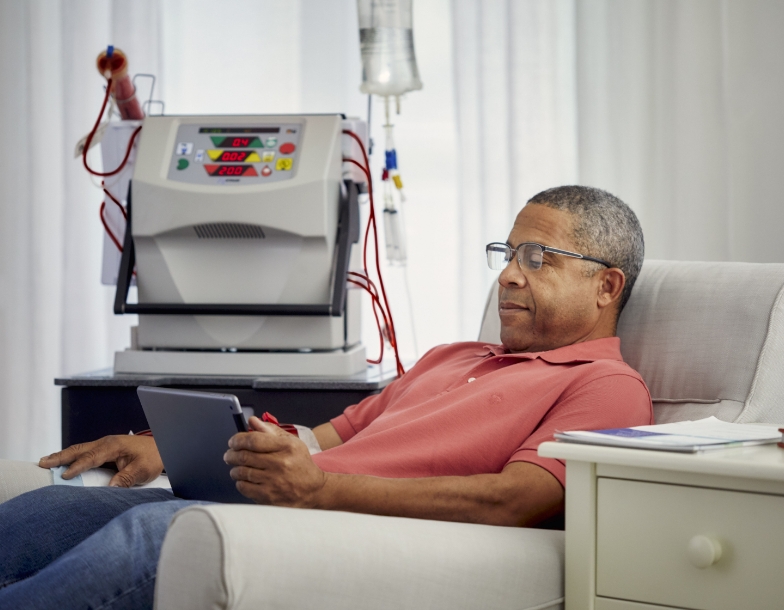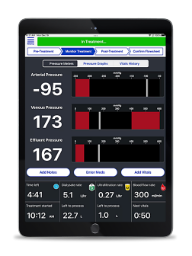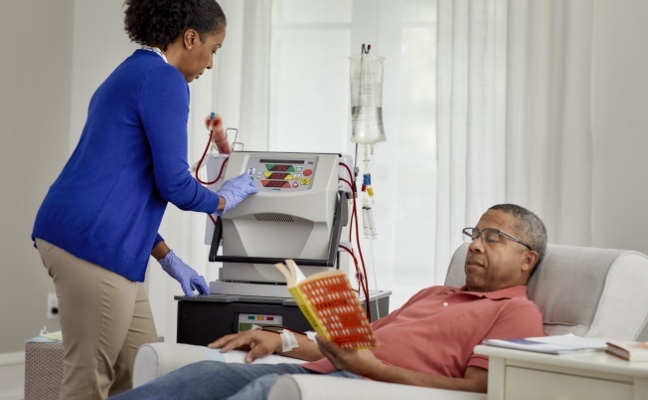- At Home
- Traveling
Cartridge
System One Cycler
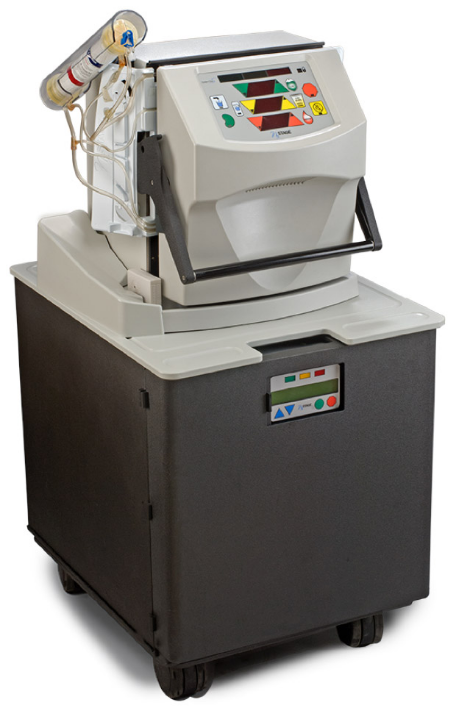
1
2
3
4
Nx2me Connected Health®
PureFlow™ SL
.
- The easy-to-use drop-in cartridge allows for easy set-up and wipe-down after treatments
- This is the heart of the system that contains the fluid pumps and system controls
- Simple interface is easy to understand and use
- Its portability gives you the freedom to dialyze in any room of your house
- Created dialysate using a combination of purified tap water and concentrated dialysate
- Unlike convention hemodialysis systems, an electrical outlet and a tap connection are all that are required to operate
×
Dialysate Bag and Warmer
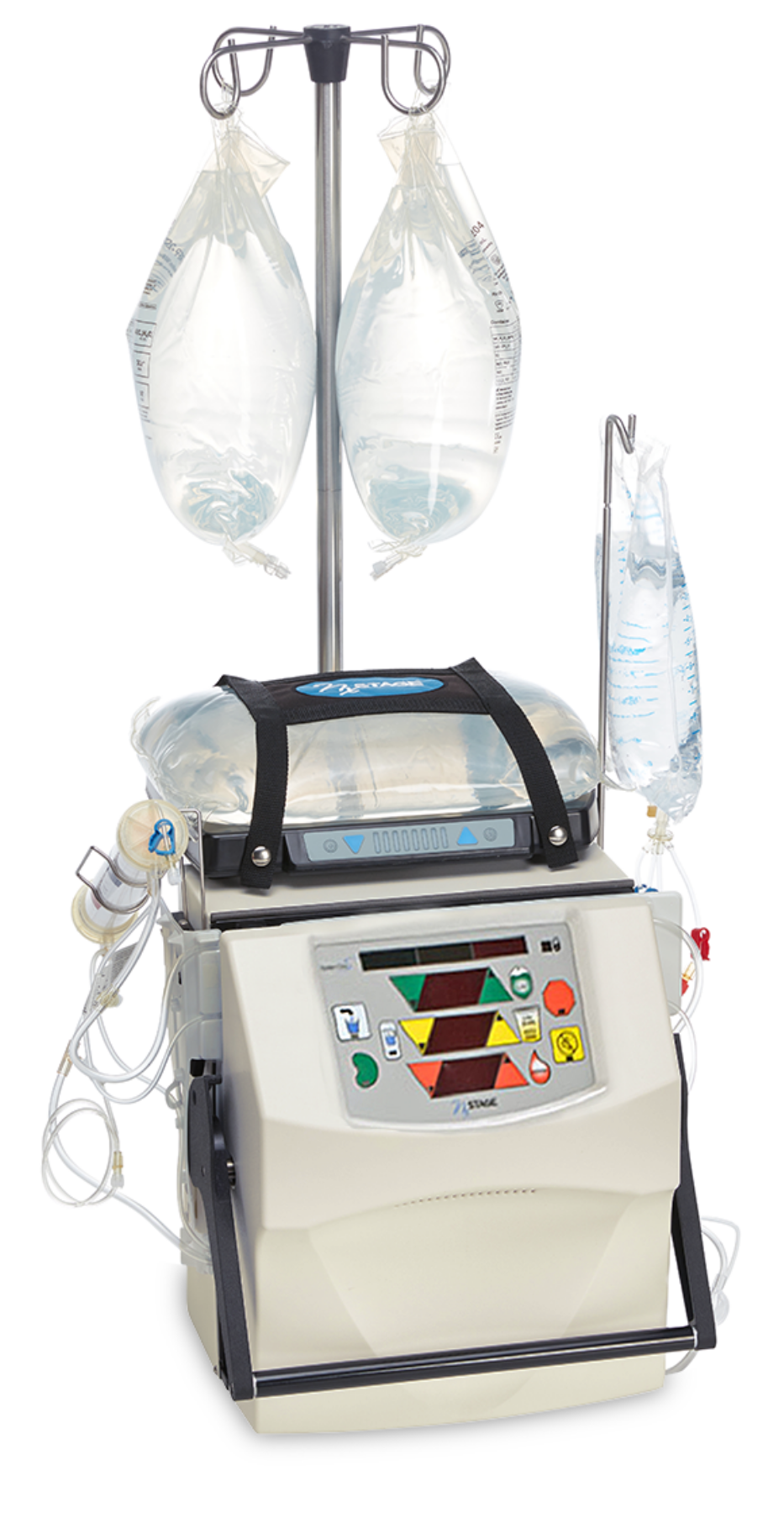
1
.
- The Express Fluid Warmer delivers warmed dialysate from the dialysate bags to the cartridge
- Pre-mixed dialysate bags can be used as an alternative to the PureFlowTM SL
- By using dialysate bags patients have the freedom to dialyze wherever they go
×

